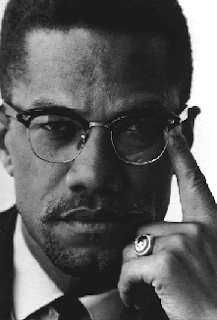At the beginning of the 1980’s, Pink Floyd wrote one of their
best-selling works of art with 30 million dollars claimed sales which had made
it reach the third highest certified album in USA. After releasing “Dark Side
of The Moon”, the band had demonstrated a unique and successful sound impact
that made them gain millions of fans across the world. Furthermore, the band
exceeded expectations with going beyond the objective way of writing the songs.
Pink had took it into a higher level of self-expression by making the writing
process of the lyrics more personal and self-centralized. He described the world through his tough
experience. The songs of “The Wall” offers an extraordinary attachment all
through the album in which it gives a smooth and coherent transition from a
track to another.
This album has been a huge success because it reflects a
certain amount of tension against the pain and struggle the world will hand
over. It has recorded as sales more than 11.5 million copies around the world
and was placed by the Rolling Stone the American pop culture magazine in the
range of the first 100 of the 500 greatest albums of all times list, more
precisely number 87. The material
offered to the fans of Pink Floyd in this album is characterized by
story-telling trait. Many songs illustrate perfectly personal miseries and
wounds of the songwriter Roger Waters which had made earn a valuable aspect. By
this feature the audience will find themselves involved in each and every song
because the lyrics express a relatable deep frustration. There is a questioning
of the norms and values of the society which oblige us to be reflect and
rethink our daily perception of the world. For example, the song entitled “Thin
Ice” emphasizes Roger Waters’ childhood during which he found himself being
disposed of his father at an early age. This song reflects the ideology of
abundance shaped by the memory of his father he barely knew. The fluid use of
words had translated his pain into lyrics reachable to the heart and mind of
the listener, where both parties find themselves sharing the same heavy load of
sad memories.
Pink
realized that he was powerless when facing life’s unfairness early in his
childhood, as mentioned by the song Another Brick in the Wall Part 1. Brick by
brick, he built an inner wall to protect himself from those calamities. Since
then, external factors such as his overprotective mother (Mother) and his
cheating wife (One of My Turns) heightened his feeling of psychological
confinement. Pressure and sentimental disappointments pushed him to contain
himself internally. Humans are social beings, as stated by Aristotle. Such
behavior is only the beginning of a death spiral which lead to bigger troubles
such as bipolar disorders. Therefore, one may wonder if it can be considered as
the only way out of the continuous struggle between the individual and the
world. There will always be social and personal boundaries built out of dismay
and anxiety, but it is our duty as conscious human beings to be consistently
fighting to tear them apart and shatter what divides us in order to establish
efficient social institutions. The lack of communication between people directly
echoes on their abilities to integrate.
However
that same integration is heavily criticized in the album. It clearly expresses
its objection and refusal of life responsibilities that society will oblige us
to fulfill in a ritual manner. Giving the example of “Another Brick in the Wall
Part II”, Roger Waters criticized the educational system that tended to produce
typical and similar generations that would only be useful in fulfilling the
needs of the manipulative government which treated its citizens like chess
pieces. Following the rise of consumerism during the 20th century, social
conformism was openly condemned by artists. It is a valid and understandable
reaction seeing the consequences social conformity can have. When all what
matters becomes the necessity of following our community's trend or our
parent's footsteps, it does not allow to explore people's potential since
"what's trendy" has already drawn limitation to people's own
capabilities. In other words, conform will make "you" happy because
it will make "us" happy to see "you" conform. However, it
is the same as people digging their own grave since they will be making choices
based on what will make the others content rather than themselves. In the end,
everyone find themselves unhappy and unfulfilled chasing other's approval for
an endless meaningless feeling of satisfactory conformism. So the question
remains: How can we make the right decisions to be happy if our parents and the
people of our society influence our choices with experiences that made them
till now unhappy?
The wall is a revolutionary album since that it’s a
combination of wild imagination and concrete experience of pain. This mix is
brought together through furious rhythmic sounds and harsh lyrics written by
Roger Waters. The name of the album is a description of the delirious idea to
separate the band from the audience. It illustrates also the decision of Pink
to isolate himself from the world as mean of protection seeing that he had
difficult life that made him create his own universe away from any social
judgment.

